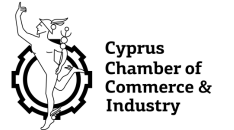Eurochambres Economic Survey 2025: Europe’s competitiveness is at a tipping point
The 2025 Eurochambres Economic Survey (EES2025), based on insights from 42,000 businesses across 27 countries, reveals that Europe’s entrepreneurs are bracing for another challenging year. High labour costs, persistent skills shortages, and a growing regulatory burden are cited as the primary threats to Europe’s already fragile competitive edge.
While the survey results indicate a minor increase in business confidence and export expectations for 2025, the overall impression is one of stagnation, rather than the growth so needed to revive Europe’s competitiveness. Employment and investment predictions are even more troubling, with modest domestic market growth offering a small glimmer of hope.
Presenting the results at a “Forum Europa: Ideas to Strengthen the Union” event in Brussels hosted by New Economy International Forum, Eurochambres President, Vladimír Dlouhý stated: “The EU must double down on enhancing Europe’s productivity and provide an enabling environment for businesses to grow and compete internationally.”
The September 2024 Draghi Report on competitiveness sets out how Europe’s economic performance has fallen behind. The 2025 Eurochambres Economic Survey underscores that much needs to be done to reverse this trend. Dlouhý put it bluntly: “We are at a tipping point for our businesses. The ‘regulate first, deal with the consequences later’ approach to EU policy-making must stop now. The new European Commission and co-legislators must focus on encouraging our businesses to invest, employ, innovate, and pursue opportunities within the single market and globally.”
Key EES2025 policy messages:
• Boost financing & simplify regulations: Strengthen financial support and regulatory frameworks to drive investment, foster business growth, and control labour costs.
• Cut red tape: Honour the 35% reporting reduction target for SMEs and eliminate barriers to a smoother, stronger single market.
• Build a skilled workforce: Attract top talent, support lifelong learning, and provide EU-wide funding for upskilling to meet tomorrow’s challenges.
• Accelerate digital transformation: Promote digital solutions and AI adoption to streamline costs and drive productivity gains.
• Power the future: Invest in modern, renewable energy infrastructure for affordable and reliable access to clean energy.
• Enable market integration: Capitalise on the single market potential and pursue favourable conditions for international trade.
Additional information:




